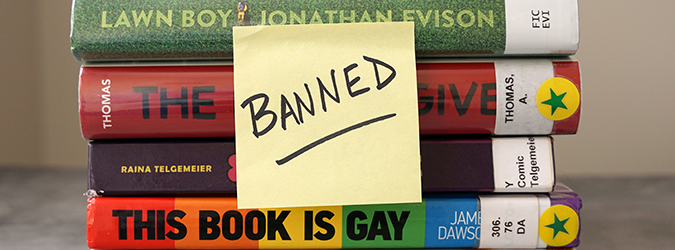New York State Bar Association Examines Book Banning
8.1.2023

A movement to ban books that discuss sexuality and race from school libraries is gaining momentum across the country including in New York State.
The growth of parents’ rights groups like “Moms for Liberty,” which supports removing books from school libraries, has led to a counter offensive by rival parent groups like “Defense of Democracy” that believe that public school teachers and librarians should have the final say. The latter group was founded in 2022 by two women in Dutchess County, New York, to oppose school board candidates backed by “Moms for Liberty.”
The Women in Law Section of the New York State Bar Association in conjunction with the Committees on Diversity, Equity and Inclusion and Civil Rights and the Task Force on Racism, Social Equity and the Law held an informational event “Banning Rosa Parks: the Impact of Book Banning on Civil Liberties.”
What’s Old is New Again
Professor Gloria J. Browne-Marshall, who teaches constitutional law at John Jay College of Criminal Justice, laid out the history of book banning, which dates back centuries.
“Banning is about trying to control societal change,” she says. “Those in power want to control progress, hide information that would lead to social change, and they have the power to do it.”
From the Roman Catholic Church persecuting scientists like Galileo to debating Charles Darwin’s ‘Origins of Species,’ Browne-Marshall says the group in power doesn’t want to cede any territory to new ideas. She gives the example of the King James Bible and how its printing was revolutionary.
“King James was the person who decided to go against the church and have the Bible printed in regular English for the regular person to read and understand for themselves. Banning is the power to stop ideas and the progress that those in power don’t want to see,” she said.
Middle School: Ground Zero in the Culture War
The current battle ground for challenging books is not in the church or in the courtroom but in the public school library. Nakia Martin, general counsel at New York’s Public Library, says ground zero in the debate are books written for middle and high school readers.
“The focus has been on books geared toward young adults, and the categories of books that have been targeted for banning deal with race, gender, sexuality as well as books about religion,” she said.
According to the American Library Association, the top 10 most challenged books in 2022 involve issues of race, gender, and sexuality with “Gender Queer” and “All Boys Aren’t Blue” topping the list. The library association says there has been a 40% increase in book titles challenged last year.
New Laws Restricting Books
The recent push back on books in classrooms and school libraries followed the protests over the death of George Floyd in 2020. Later that year, the President’s Advisory 1776 Commission was formed to examine issues of race, gender and the teaching of American history. Its report, published in January 2021, includes guidelines for teaching civics education, the founding of America and a condemnation of identity politics.
“Books by white women are not being banned,” said Browne-Marshall. “James Patterson is not being banned. The focus of this movement is on those gaining power in the country and rising in the arts, sports, law and industry.”
More than 16 states passed laws restricting content, most of which are centered around issues of race and sexuality. A new state law in Iowa attaches jail time to the dissemination of any material that is considered harmful to minors. In Texas, publishing companies face jail time for publishing works deemed to be obscene.
The STOP W.O.K.E Act, passed in Florida, removes any discussion of past wrongs in American history that might make someone feel guilty or uncomfortable. The panelists claim the “Stop Wrongs to Our Kids and Employees Act” prevents any conversation of how American history may affect people differently. They hope that if young people are denied this information, they will seek it out on their own.
Challenges to the New Laws
Concern about a chilling effect on publishing has prompted Penguin Random House to file a lawsuit against a Florida school district this year. The state of Illinois was the first to pass a bill preventing book banning in which the secretary of state may restrict funding to a library if it fails to follow the ALA bill of rights. In Texas, the ACLU is challenging a book ban, claiming it violates Title IX because the removal of more than 100 books were related to LGBTQ characters.
The Biden Administration has created a new coordinator position in the Education Department to address the increase in challenged books. The coordinator is charged with investigating whether book bans violate federal civil rights law and create a hostile work environment for students and educators.
The most vocal opponents of the challenges are coming from the students themselves. “It is the children who are raising their voices and saying, ‘this is the direction we need to head; these are the issues we care about,” said panel moderator Fretta DeSilva.
Browne-Marshall agrees. “The young people are saying ‘don’t do this in my name’ because these laws are based on the parents trying to protect the children and the young people are saying no.”
The event closed with Browne-Marshall asking lawyers to get involved. “We are lawyers, we are advocates. We are people with a special gift. We need to use our training, use our access, and get to work to make the country, our communities, our hometowns into what we believe is the best of us.”
The New York State Bar Association informational program is free and can be viewed here.






